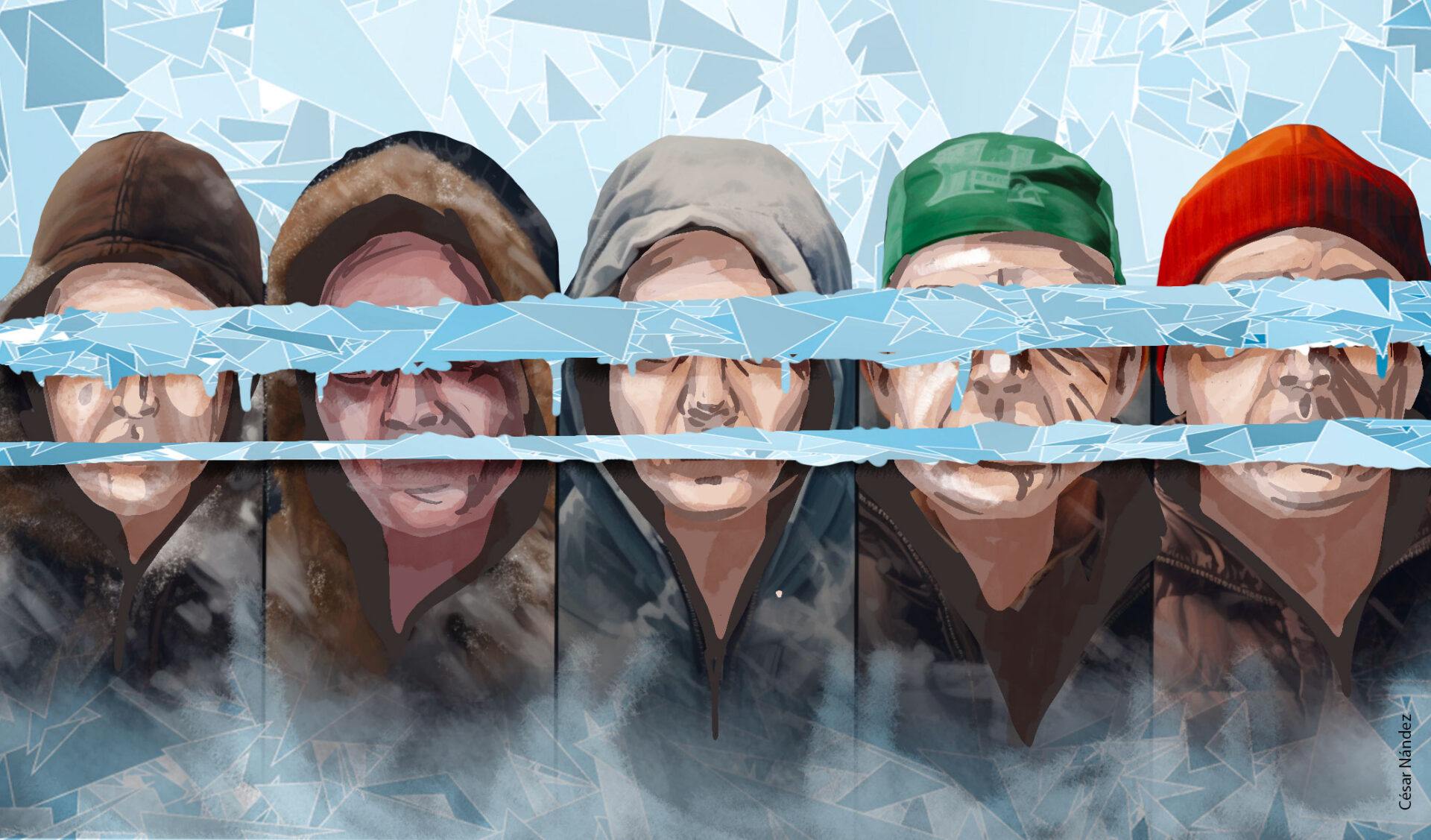The World Justice Project (WPJ) recently published its report for the year 2023, which seeks to establish the capacity of states to abide by clear, pre-established rules of the game. In other words, to measure the health of the rule of law in different countries. The results are conclusive: there is a progressive deterioration in much of the world, Latin America does not escape this dynamic: the data should be of concern to governments and the political party system. The tendencies of such authoritarianism are not identical, but they are growing in a region that a little more than three decades ago was celebrating a democratic spring. It seems that to paraphrase the famous Game of Thrones series: “winter is coming”.
The aforementioned WPJ Global Index establishes eight variables in 142 states. These are: (i) limits to government power; (ii) level of corruption; (iii) open government; (iv) respect for fundamental rights; (v) order and security; (vi) regulatory enforcement; (vii) civil justice; and (viii) criminal justice. The results are worrisome because of the progressive deterioration of the entire region in recent years and because they coincide with other indices such as the V-Dem (Varieties of Democracy) 2023 Annual Report, which categorizes the state of democracy in the world, but above all they can be evidenced by factual data of serious institutional deterioration.
The study also coincides with the forecast for 2024 made by CIDOB in Barcelona, which considers that the erosion of democracy is a latent threat to the Western world today and is probably one of the main challenges for 2024, which paradoxically has elections in more than half of the world’s countries, including the United States and India.
As always, in Latin America three countries top the podium: Uruguay (25), Costa Rica (29) and Chile (33), however, the latter shows a gradual decline since 2015 despite remaining in the same place in the table of the previous year. Looking at the 32 Latin American countries measured in the study, most of them show stagnation (in the best of cases) or a direct fall in terms of both their scores and their position in the ranking table.
Among the 32 countries, only Peru (+4), Bolivia (+1), Guyana (+1), Mexico (+1), Guatemala (+1), Honduras (+1) and the Dominican Republic (+8) improved their rankings concerning the 2022 Report. In some cases (such as Guatemala) it falls in the measurement, but rises in position only because of the generalized fall of many other countries, mainly in the Region. In other words, if Latin America is not doing worse, it is simply because the deterioration of the democratic system seems to be a storm that to a greater or lesser extent shakes what we historically known as the West.
Nevertheless, a number of factors are contributing to the deepening of the Latin American problem. For example, the absence of legitimized international regional scenarios to counteract many of these common problems. Although Latin America has a wide range of multilateral organizations and meetings (the Andean Community of Nations, Mercosur, CELAC, the Pacific Alliance, CARICOM, to mention a few), few of them have achieved real transformations in terms of regional integration and are currently unable to cope with inflationary dynamics, economic crises and, even more worrying, transnational threats to international security.
Most of these scenarios -especially those that emerged in this century-acted as platforms for ideologies that converged electorally at a precise moment and were not true points of departure and integration as in post-war Europe. Curiously, those that had emerged with this interest in the last century ended up being underestimated, due to the ideological differences of the governments that were part of them. For example, what happened in the last stage of Mercosur or with the Andean Community of Nations?
That is to say that, curiously, in a region that is experiencing similar problems, there are no consolidated scenarios that can respond to these phenomena as has occurred, for example, with the Central American gangs or the drug cartels in the Andean region or the Triple Border. Sadly, organized crime has been more willing to engage in transnational integration in terms of coverage and effectiveness than the very states that should be counteracting it. This is without going into environmental issues (Amazon deforestation, for example) or migratory issues, as is the case of the Colombian-Panamanian border, which has become a real corridor for migrants of more than 50 nationalities in the midst of rugged areas controlled by irregular armed actors.
The cases of El Salvador and Guatemala, approaching an abyss
The panorama is regrettable if we take into account that two decades ago there was only one country classified as a closed autocracy (in terms of the V-Dem): Cuba. Currently, that place is frankly disputed with Nicaragua and Venezuela with democratic imitations without any real division of powers, restricted basic freedoms and marked violations of Human Rights.
In addition to the aforementioned cases and the notable deterioration of countries that had made significant progress in democratic matters (the Chilean case is of concern, where the constitutional process failed after two resounding rejections of the proposals presented via plebiscite), two cases show a profound institutional erosion, albeit from two different dynamics: El Salvador and Guatemala.
In the first case, it is taken for granted that Nayib Bukele will be elected again as President despite the clear constitutional prohibition on reelection, which was qualified by a pro-Bukele Constitutional Court. It is worrisome that, although multiple organizations point out the growing limitation of rights, the cooptation of other public powers and the state of exception, the Salvadoran president has a popular acceptance that exceeds 80%.
The Guatemalan case is more complex: after Bernardo Arévalo’s resounding victory in the presidential elections for a new term, there was a coordinated attempt by various state institutions to declare his victory illegal and prevent his recent inauguration. Despite the fact that they did not succeed, the Arévalo case showed how the institutions that are apparently guardians of the rule of law can act against you.
Democratic fractures in our times do not involve military coups, bombing of government palaces and closure of Parliament. We live in times of subtle and progressive institutional ruptures, framed in populist speeches, with the support of social networks and a violation of truthful information. Therefore, in addition to advocating for regional integration scenarios that truthfully defend democracy regardless of the ideological hue of those who violate it, it is necessary to strengthen the institutional culture of the countries and ensure a broad political education of all layers of society that will allow us not to return to really dark times of tyrannies disguised as charismatic populisms.
*Translated by Micaela Machado Rodrigues from the original in Spanish.
Autor
Lawyer, journalist and university professor. Professor assigned to the Political Science and Government program at the Los Libertadores University Foundation. Master in Journalism from the University of Barcelona / Columbia University.












